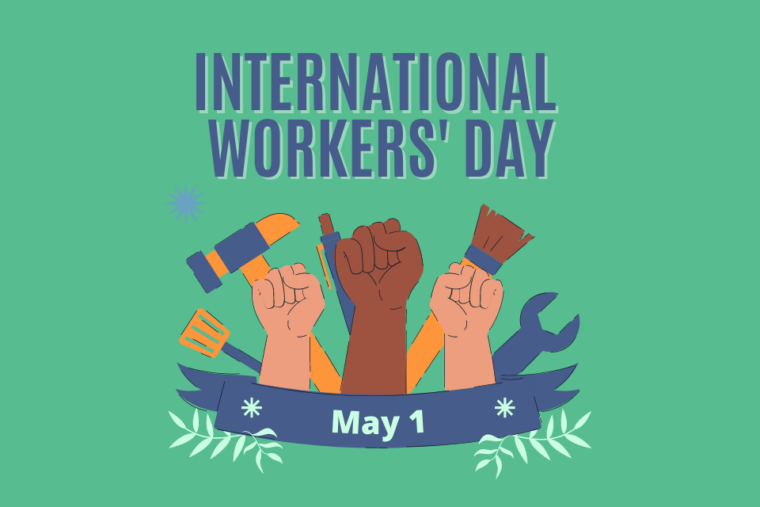
5 Money Mistakes Nigerian Workers Keep Making (and How to Fix Them in 2025)
Author Eyitemi Efole
Let’s face it — adulting is expensive. Between bills, data, jollof money, black tax, and the occasional “urgent 2k,” many Nigerian workers are caught in a cycle of earn → spend → repeat.
Yes! Many Nigerian professionals are juggling bills, black tax, side hustles, and future dreams. But somewhere in the mix, a few money mistakes keep creeping in. And the real danger? They're so common, most of us don’t even notice them.
But Workers’ Day is the perfect time to pause, reflect, and make smarter decisions about your money. If you've been wondering why your salary always feels like it disappears too fast, the answer might lie in these common money mistakes.
Here’s how to fix them — and start making your money work for you in 2025.
5 common financial mistakes Nigerian workers make — and how to fix them smartly in 2025.
1. Spending Before Saving
Most workers wait till the end of the month to “see what’s left” before saving. It’s easy to spend when you feel you’ve earned it, but without intentional saving, you’ll always be chasing your next salary without ever getting ahead. Even small, regular savings can snowball into real financial progress over time.
Spoiler alert: there’s usually nothing left.
🧠 Fix It: Flip the script — save before you spend.
Treat savings like a non-negotiable bill. When it lands, automate a portion of your salary to move directly into a high-interest savings account. You can start with ₦5,000 or ₦10,000 — consistency matters more than the amount.
Use nairaCompare to find high-interest savings accounts or automated investment options. Why let your money sit idle when it could be growing quietly in the background?
2. Leaving Money Idle in a Regular Account
A current account is great for transactions, but horrible for savings. Why? Because it offers little to no interest, and often comes with maintenance charges that quietly chip away at your balance.
Leaving your money there is like working overtime and refusing your paycheck. You don’t need a finance degree to know your savings shouldn’t sit in a zero-interest current account. That’s a missed opportunity.
🧠 Fix It: Put your money to work!
Explore options like:
- Fixed deposit accounts that lock your funds and pay steady interest
- Money market funds that combine low risk with decent returns
- Dollar investments that help hedge against naira depreciation
With nairaCompare, you can compare all these in one place, with filters for interest rates, minimum deposit amounts, and trusted providers. You worked for your money — now make sure it works for you too.
3. Borrowing Without Comparing
Whether it’s a salary advance or an emergency loan, borrowing is sometimes necessary. But many Nigerians rush into the first loan offer without checking the interest rate, hidden fees, or repayment terms. This mistake can leave you stuck in a debt trap that’s harder to escape than traffic on the Third Mainland Bridge.
You’re not alone — I know lots of Nigerians turn to salary advances or quick loans. But taking the first loan you see without comparing rates? That’s not wise.
🧠 Fix It: Before you borrow:
- Compare the Annual Percentage Rate (APR) — that’s the true cost of the loan
- Check the repayment schedule — is it flexible?
- Watch out for hidden charges, processing fees, and penalties
nairaCompare makes this easy. We lay out the details across multiple lenders so you can choose a loan that fits your income and goals, not one that bleeds your wallet dry.
4. Ignoring Credit Scores/Reports
Many Nigerian workers don’t even know they have a credit report — until it becomes a problem. Your credit report is like your financial fingerprint, and it tells lenders how trustworthy you are with money.
- Bad score = higher loan interest (or outright rejection).
- Good score = better financial opportunities.
🧠 Fix It: Your credit score matters. It’s like your financial report card, and it affects everything from loan approvals to interest rates.
Start paying attention:
- Pay your bills and loan repayments on time
- Avoid maxing out credit limits
- Don’t borrow from multiple lenders at once
Through nairaCompare’s tools, you can track and understand your credit report for just ₦ 4,000 and get access to credit-building tips tailored to Nigerian workers. A good score could be your key to better housing, car financing, or business loans down the line.
5. Thinking You Need Millions to Invest
This is one of the biggest money myths around — that investing is only for the rich or “finance bros.” In reality, you can start with as little as ₦ 5,000 and grow over time. Delaying investing means missing out on compound growth, and keeping your money stuck in a cycle of just “earning and spending."
🧠 Fix It: Start with what you have.
Explore low-risk options like:
- Mutual funds for diversified exposure
- Fixed income for predictable returns
- Dollar-denominated investments for currency protection
With nairaCompare, you can filter investment options based on your income level, goals, and risk appetite — and even chat with Maxella, our AI wingwoman, for personalized recommendations.
Final Thought: You Deserve More Than Just a Salary
Workers’ Day is about you — your hustle, your grind, your goals. But don’t let financial mistakes undo all that hard work. With tools like nairaCompare, you’re not just earning — you’re elevating. Let’s make 2025 the year you stop hustling backward.
Ready to upgrade your money moves? Start here
About Author

Eyitemi Efole
Eyitemi Efole is exploring the marketing field, with a particular interest in brand management, strategy, and operations. She is keen on understanding how brands build trust and connect meaningfully with their audience.
.png?width=1615&height=444&name=nairaCompare%20Christmas%20Full%20Logo%20(White%20%26%20Yellow).png)
.png?width=1615&height=444&name=nairaCompare%20Christmas%20logo%20(PNG).png)







.png?width=352&name=Jan-Blog-Posts4%20(1).png)
.jpg?width=352&name=R%20(1).jpg)